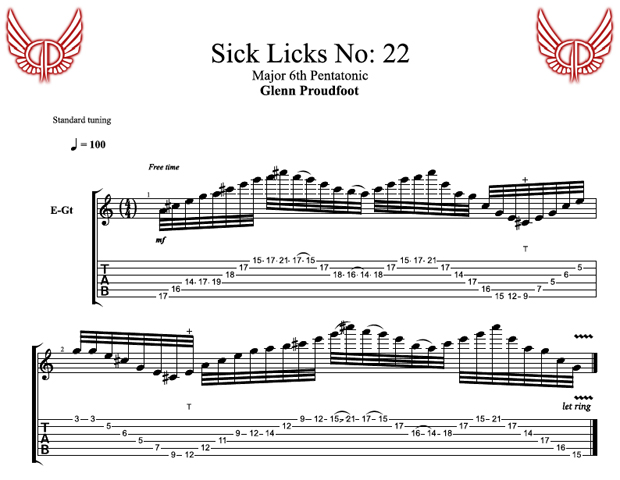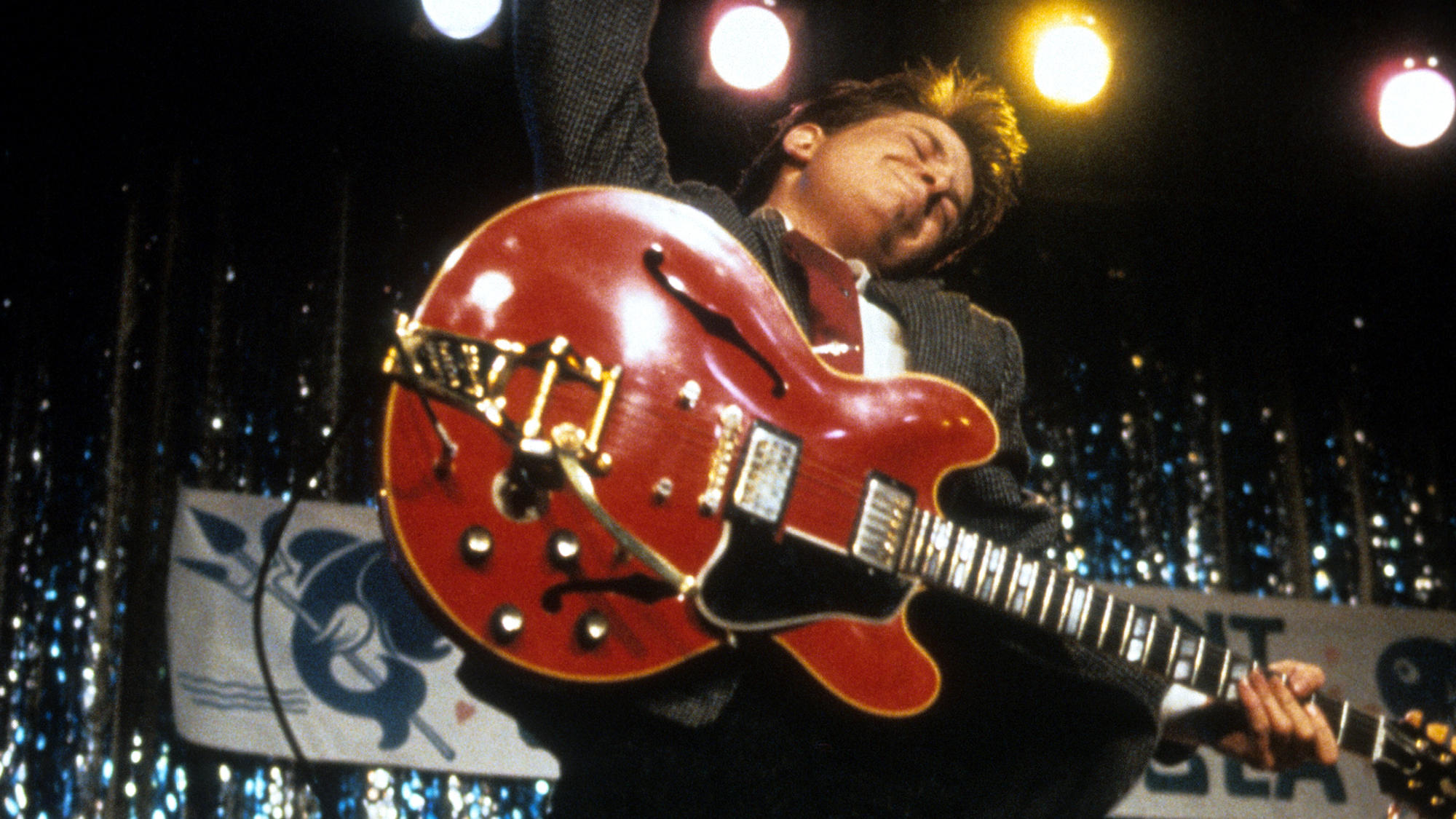Sick Licks: Major 6th Mayhem

In this Sick Lick, I'm using the E pentatonic scale with the added major 6th. When you add the major 6th to the pentatonic, it creates a dorian-sounding scale, so this is a cool thing to remember if you're chasing that sound but don't want to lose the rock vibe of the pentatonic.
This particular scale works great over the IV (four) chord in a blues progression. For example, we are in the key of E here, so the IV chord would be the A. This is where the Major 6th pentatonic will sound totally killer. The reason for this is that the major 6th note (C#) is actually the major 3rd in the IV chord, so it immediately gives us a more melodic sound when we use it in this fashion. Having said this, it is also great to use over the I (one) chord as it gives you that dorian sound, which when used properly, can create a really nice color to your runs and passages.
Even though this lick is played at speed, if you dissect it and play it slowly, you will really hear how melodic it is, it is simply played fast to demonstrate how far you can take the idea.
The notes in this scale are as follows: E G A B C# D E, the C# is the Major 6th. It is important to fully understand the scale before attempting this lick as it will get too confusing if you don’t. Play this scale just as you'd play a straight pentatonic scale, the only difference being that on the D and B strings, we fret three notes instead of two. On the D string the three notes are C# D E, and on the B they are B C# D. (This example is referring to the E minor pentatonic in the first position).
Fret these lines the same way you would a major scale, starting with your first finger and ending with your pinky.
This scale, like all scales, should be practiced in all positions on the neck. The pentatonic scale has five starting positions in any given key. So I suggest starting in position 1 and slowly moving up through the other positions.
The Lick
All the latest guitar news, interviews, lessons, reviews, deals and more, direct to your inbox!
I start this lick using a series of three-string arpeggios to create one big-sounding arpeggio. I combine the arpeggios with legato and also picked notes to keep a nice even flow with the run. (You may notice that the arpeggios are very similar to A major arpeggios; this is because of the major 6th note we have added, this is what creates the dorian sound).
From there, I use my left thumb to fret the note on the 12th fret of the low E string to create the pivot for me to swing my left hand over the top to fret the six-string arpeggio. From here, I do the same thing in reverse to get my hand back into the normal fretting position.
I finish this lick with another series of three-string arpeggios combining legato and slides. I suggest just moving through the transcription slowly while remembering that you don't need to play these licks at high speed for them to sound cool. They can be used as more bluesy jazz lines and adapted to all kinds of playing.
Thanks, and I hope you enjoy! Please join me on YouTube here.

Australia's Glenn Proudfoot has played and toured with major signed bands and artists in Europe and Australia, including progressive rockers Prazsky Vyber. Glenn released his first instrumental solo album, Lick Em, in 2010. It is available on iTunes and at glennproudfoot.com. Glenn was featured in the October 2010 issue of Guitar World and now creates "Betcha Can’t Play This" segments and lessons for GW. Glenn also has a monthly GW column, "Loud & Proud," which offers insight into his style and approach to the guitar. Glenn is working on a project with Ezekiel Ox (ex Mammal) and Lucius Borich (Cog), which is managed by Ted Gardner, ex-Tool and Jane's Addiction manager. The band has done pre-production on 22 tracks and is set to hit the studio and finish their first studio album. The album is set for release in 2012. Glenn also is working on the followup to his debut album; it, too, will be released in 2012.

